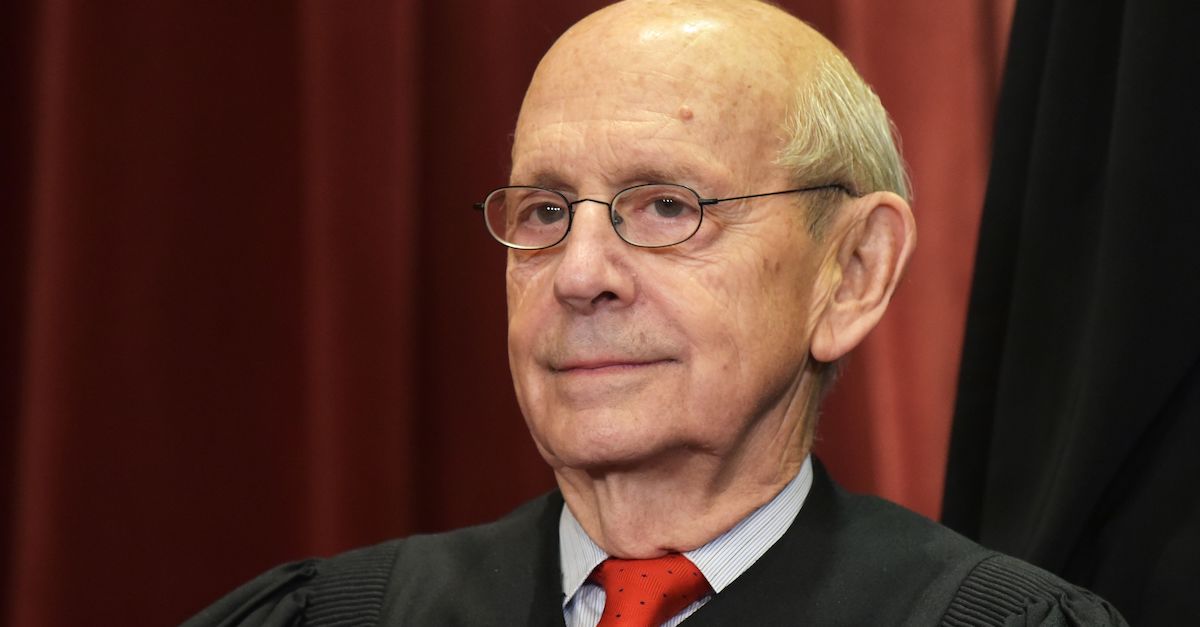
Associate Justice Stephen Breyer
The Supreme Court of the United States on Monday declined to take up the petition of death row inmate Joe Clarence Smith. Smith, on death row longer than any inmate in Arizona, is one of the longest-serving death row inmates in the country.
The nearly-retired Justice Stephen Breyer had some of his usual thoughts about the cruelty of leaving inmates to languish on death row for long periods of time.
Smith was sentenced to death in 1977 for the sexual assault and murder of two young Arizona girls. Smith was tried and convicted of the 1975 murder 18-year-old Sandy Spencer, and pleaded guilty to the 1976 murder of 14-year old Neva Lee. After Smith’s death sentence was vacated in 1979, he was resentenced to death. Smith’s second death sentence was vacated in 1999. He was resentenced to death again in 2004.
Smith again sought to overturn his death sentence in 2007, arguing that it would be cruel and unusual to execute him after so much time had passed. SCOTUS denied that petition, and Smith filed another one 10 years later. The high court denied review once again. Smith’s petition once more came before the justices. For a third time, they have denied certiorari.
In Justice Breyer’s brief statement commenting on SCOTUS’s denial, he pointed out the exceptionality of Smith’s case:
By now, more than 44 years have passed since his first death sentence. And he “has spent almost all of [that] time” in solitary confinement, “alone in a cell that . . . measures 86.4 square feet, or roughly the size of a compact parking space.” Smith tells us that only four other prisoners in all of the United States have been on death row longer than he has.
Breyer acknowledged that Smith’s case presents “procedural obstacles” that weigh against the Court’s granting certiorari, as in 2018. The justice’s thoughts on the underlying substance of Smith’s claim, however, were clear: an almost half-century on death row is seriously problematic given the Eighth Amendment’s guarantee against cruel and unusual punishment.
Breyer quoted a precedent from 1890 in which the Court said that “the uncertainty of waiting in prison under threat of execution for just four weeks is ‘one of the most horrible feelings to which [a person] can be subjected.'”
“Smith has been subjected to those conditions, not for four weeks, but for four decades,”commented Breyer, before continuing, “I continue to believe that the excessive length of time that Smith and others have spent on death row awaiting execution raises serious doubts about the constitutionality of the death penalty as it is currently administered.”
Smith’s case is not the first in which Breyer raised pointed concerns about the constitutionality of capital punishment. In 2020, Breyer wrote the hollowing in another death penalty case:
I continue to believe that excessive delay both “undermines the death penalty’s penological rationale: and is “in and of itself . . . especially cruel because it ‘subjects death row inmates to decades of especially severe, dehumanizing conditions of confinement.'”
Arizona conducted its first execution in years on May 11, 2022. Clarence Dixon was executed by the Arizona Department of Corrections in a procedure that has been characterized as “botched” by an expert due to what was reportedly a problem setting an intravenous line for the necessary chemicals.
Prior to Dixon’s execution, Arizona last put an inmate to death when it executed Joseph Wood on July 23, 2014. Wood’s execution was also problematic in that it took nearly two hours — and 15 times the amount of chemicals called for in official state protocols.
[Image via Mandel Ngan/AFP/Getty Images]
Have a tip we should know? [email protected]